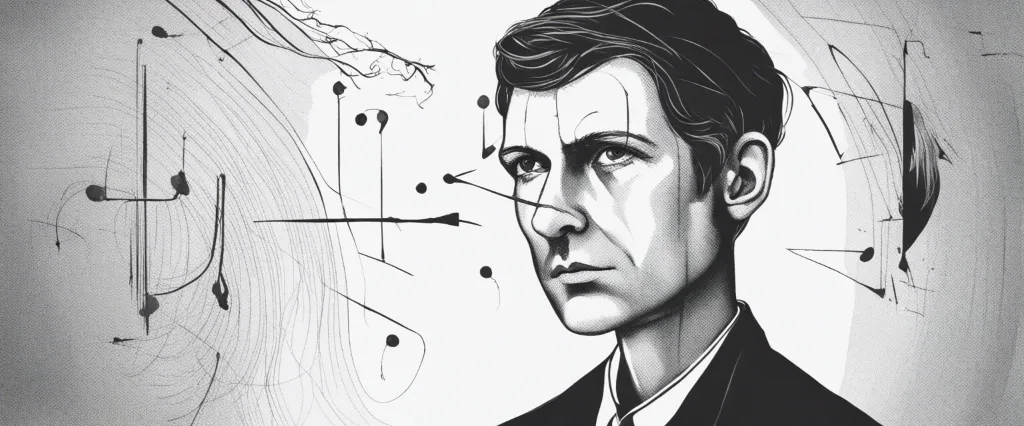——Success Through a Positive Mental Attitude by Napoleon Hill & Finite and Infinite Games by James P Carse

In the realm of personal development and philosophical inquiry, numerous books have emerged, each offering unique perspectives on ways to navigate the complexities of life and achieve success. Two such groundbreaking works, “Success Through a Positive Mental Attitude” by Napoleon Hill and “Finite and Infinite Games” by James P. Carse, traverse different realms – one delving into the realm of mindset and the power of positivity, while the other explores the profound concept of games and how they shape our existence. While seemingly distinct in their themes, these books share a striking similarity in their ability to challenge societal norms and inspire readers to embrace a transformative journey towards personal growth and fulfillment.
Published over four decades apart, Hill’s “Success Through a Positive Mental Attitude” and Carse’s “Finite and Infinite Games” captivate readers with their thought-provoking ideas, holding the potential to revolutionize the way individuals perceive their lives and interact in the world. As we embark on this comparative study, we will delve into the depths of these literary masterpieces, examining their underlying principles, exploring the fundamental differences in their approaches, and ultimately unraveling the tapestry of wisdom they offer to readers.
Hill’s seminal work, initially published in 1960, is a cornerstone in the field of self-help literature. Its focus lies in the power of the mind and how adopting a positive mental attitude can lead to immense success and self-fulfillment. Through captivating anecdotes and practical advice, Hill imparts invaluable guidance on harnessing the unlimited potential within oneself, illustrating the profound impact our thoughts and beliefs have on shaping our reality. As we delve into the principles of “Success Through a Positive Mental Attitude,” we will uncover the ways in which personal mindset and the cultivation of optimism contribute to achieving extraordinary accomplishments and transcending the barriers that often impede progress.
On the other hand, Carse’s “Finite and Infinite Games,” published in 1986, presents a vastly different perspective on life’s endeavors, challenging conventional understanding by dissecting the notion of games as fundamental to our existence. Drawing from a wide range of philosophical and cultural references, Carse explores the contrasting dynamics of finite and infinite games, revealing the transformative nature of viewing life as an infinite, creative endeavor rather than a finite, competitive pursuit. Through his profound insights, readers are invited to question societal constructs, embrace a sense of playfulness, and navigate the complexities of existence with wisdom and grace.
As we delve deeper into each book, we will embark on a comparative exploration of their central themes, revealing the potential synergies and divergences in the perspectives of Hill and Carse. Along this enlightening journey, we will discover the ways in which an optimistic mindset and the acceptance of life as a profound game intertwine, offering profound possibilities for personal growth, success, and a profound understanding of the human experience. Through this study, we aim to unravel the key principles that these two influential authors bestow upon their readers, providing invaluable insights into the multifaceted nature of personal development and philosophical exploration.
Brief Summary of Two Books
Success Through a Positive Mental Attitude by Napoleon Hill
“Success Through a Positive Mental Attitude” is a collaboration between Napoleon Hill and W. Clement Stone, where they delve into the power of cultivating a positive mindset to achieve success in all aspects of life. The book explores the principles, strategies, and practical techniques on how to develop and maintain a positive mental attitude (PMA).
The authors assert that PMA is key to overcoming challenges, achieving goals, and exuding happiness and fulfillment. They highlight the importance of self-belief, affirmations, and visualization in shaping one’s mindset. By focusing on positive thoughts, individuals have the ability to transform their subconscious mind, influencing their actions and the outcomes they attract.
Hill and Stone emphasize the significance of desire, perseverance, and taking personal responsibility for one’s life. They provide real-life examples of successful individuals who were determined to succeed despite facing countless obstacles. The book also touches on the power of gratitude, forgiveness, and the importance of surrounding oneself with like-minded individuals who support personal growth.
Additionally, the authors discuss the role of faith and spirituality in developing and maintaining a positive mental attitude. They argue that having faith in oneself and a higher power can provide individuals with the strength and resilience necessary to overcome adversity and achieve their desired goals.
“Success Through a Positive Mental Attitude” serves as a practical guide for readers seeking to adopt a positive mindset and ultimately achieve success in all areas of life. The book encourages readers to align their thoughts, emotions, and actions with positivity, resilience, and determined effort, presenting a blueprint for transforming one’s life through the power of a positive mental attitude.
Finite and Infinite Games by James P Carse
“Finite and Infinite Games” by James P. Carse is a philosophical book that explores the concepts of finite and infinite games and how they relate to human life and society.
The book starts by defining finite games as activities with fixed rules and participants, where the goal is to win. These games have clear boundaries, limited resources, and definitive outcomes. In contrast, infinite games are ongoing and have no fixed rules or participants. The aim is not to win but to keep the game going, to perpetuate the play itself.
Carse argues that while finite games are necessary and can be enjoyable, they become problematic when applied to all aspects of life. He believes that the only true infinite game is life itself, encompassing all other games as mere subsets. Carse asserts that the purpose of life lies not in winning but in actively participating and embracing the uncertainty and openness of the game.
Throughout the book, Carse explores various examples to showcase the implications of finite and infinite games in human existence, both individually and collectively. He discusses how institutions, such as governments and religions, often turn into finite games, losing sight of the infinite nature of life. He emphasizes the importance of approaching situations with an infinite mindset, embracing change, and seeking to enhance the possibilities for others rather than focusing on personal victories.
In the end, “Finite and Infinite Games” is a thought-provoking book that challenges our conventional view of life and competition. It encourages readers to question the prevailing mindset of winning and losing, and instead explore the richness and meaning that come from engaging in infinite games.
Comparison between Two Books

Similarities in Positive Thinking
In both “Success Through a Positive Mental Attitude” by Napoleon Hill and “Finite and Infinite Games” by James P Carse, positive thinking is highlighted as a key aspect for achieving success and living a fulfilled life. While the books approach the concept of positive thinking from different angles, they share some fundamental similarities.
1. Mindset and Perspective: Both books emphasize the importance of adopting a positive mindset and developing a constructive perspective towards life. They stress that having a positive mental attitude allows individuals to approach challenges and obstacles with optimism, resilience, and creativity.
2. Self-belief and Confidence: Hill and Carse highlight the significance of self-belief and confidence in achieving success. They argue that positive thinking not only helps individuals develop a strong belief in their abilities, but it also boosts their confidence to overcome setbacks and failures.
3. Focus on Growth and Improvement: In both books, positive thinking is associated with a growth mindset. Hill and Carse encourage readers to view mistakes and failures as opportunities for learning and growth. They emphasize that a positive mental attitude enables individuals to continuously improve themselves and develop new skills.
4. Visualization and Goal Setting: Another similarity between the two books is the concept of visualization and goal setting. Hill and Carse suggest that positive thinking involves envisioning oneself achieving goals and visualizing the desired outcome. By setting clear and ambitious goals, individuals can maintain a positive attitude, stay motivated, and take necessary actions to reach their aspirations.
5. Generating Positive Energy: Both authors assert that positive thoughts and attitudes have the power to create positive energy, which can influence and attract success in various aspects of life. Positive thinking is seen as a force that not only impacts personal well-being but also shapes relationships, opportunities, and overall life outcomes.
These similarities demonstrate that both “Success Through a Positive Mental Attitude” and “Finite and Infinite Games” recognize the transformative power of positive thinking in various domains of life. Whether it is in cultivating a winning mindset, embracing challenges, developing self-belief, or striving for continuous improvement, positive thinking plays a vital role in achieving success and living a meaningful existence.
Divergences in Positive Thinking
Success Through a Positive Mental Attitude by Napoleon Hill and Finite and Infinite Games by James P. Carse are both influential self-help books that explore different aspects of personal development and success. While they approach the subject matter from different angles, they both touch upon the concept of positive thinking. However, there are notable divergences between the two books regarding positive thinking.
Napoleon Hill’s Success Through a Positive Mental Attitude focuses heavily on the power of positive thinking and its impact on achieving success. Hill argues that a positive mental attitude is the key to attracting opportunities, overcoming challenges, and achieving one’s goals. He emphasizes that individuals can train their minds to focus on positive thoughts and outlooks, which will ultimately lead to success. Hill provides several anecdotes and success stories to support the idea that developing and maintaining a positive mental attitude is crucial for accomplishing greatness. His book serves as a guide to acquiring the right mindset for success through positive thinking.
On the other hand, James P. Carse’s Finite and Infinite Games takes a more philosophical and conceptual approach. While positive thinking is not explicitly addressed as a central theme, Carse explores the concept of games and how they are played. He categorizes games into two types: finite games, which are played to win or lose, and infinite games, which are played to keep the game going indefinitely. Carse argues that in life, individuals should embrace the mindset of playing infinite games, where the focus is not on winning or losing but on continuous play and improvement. In this context, positive thinking can be seen as a tool to sustain engagement and creativity throughout the infinite game of life.
The divergence in positive thinking between these two books lies in their different approaches and perspectives. Hill’s book clearly advocates the power of maintaining a positive mental attitude to achieve success, while Carse’s book places less emphasis on positive thinking as a direct cause of success. Instead, Carse emphasizes the importance of adopting an open, creative, and engaged mindset that allows individuals to play the infinite game of life.
While both books recognize the significance of attitude and mindset in personal development, they present different frameworks and philosophies. Hill’s approach is more practical and actionable, encouraging readers to actively create a positive mental attitude. In contrast, Carse’s perspective is more abstract and philosophical, suggesting that positivity may be an inherent aspect of playing infinite games.
In summary, while positive thinking serves as an important element in both Success Through a Positive Mental Attitude and Finite and Infinite Games, the books diverge in their treatment of this concept. Hill’s book focuses on consciously developing and maintaining a positive mental attitude as a means to achieve success, while Carse’s book approaches positive thinking within the broader context of embracing an infinite game mentality in life.

Conclusion
Both “Success Through a Positive Mental Attitude” by Napoleon Hill and “Finite and Infinite Games” by James P. Carse offer valuable insights, but the worthiness of reading each book depends on your personal interests and goals.
If you are looking for a book that explores the power of a positive attitude and mindset in achieving success, “Success Through a Positive Mental Attitude” may be more suitable for you. Napoleon Hill’s work focuses on developing a mindset that helps attract success and abundance by emphasizing the importance of positive thinking and belief in achieving goals.
On the other hand, if you are interested in understanding the concepts of games, play, and the nature of competition in various aspects of life, “Finite and Infinite Games” by James P. Carse would be a great choice. Carse’s book delves into the philosophical notions of finite games (which have fixed rules and winners) and infinite games (which are played for the purpose of continuing the play), exploring how these concepts impact our perceptions and interactions.
Ultimately, the decision of which book is more worthy of reading depends on your specific interests and what you hope to gain from your reading experience.


